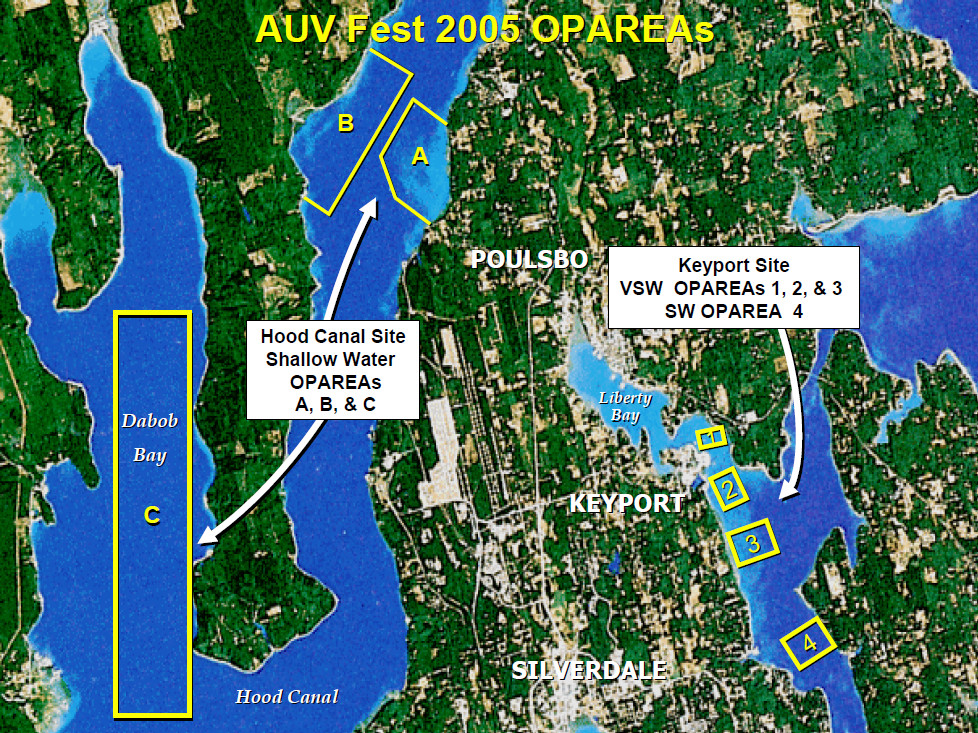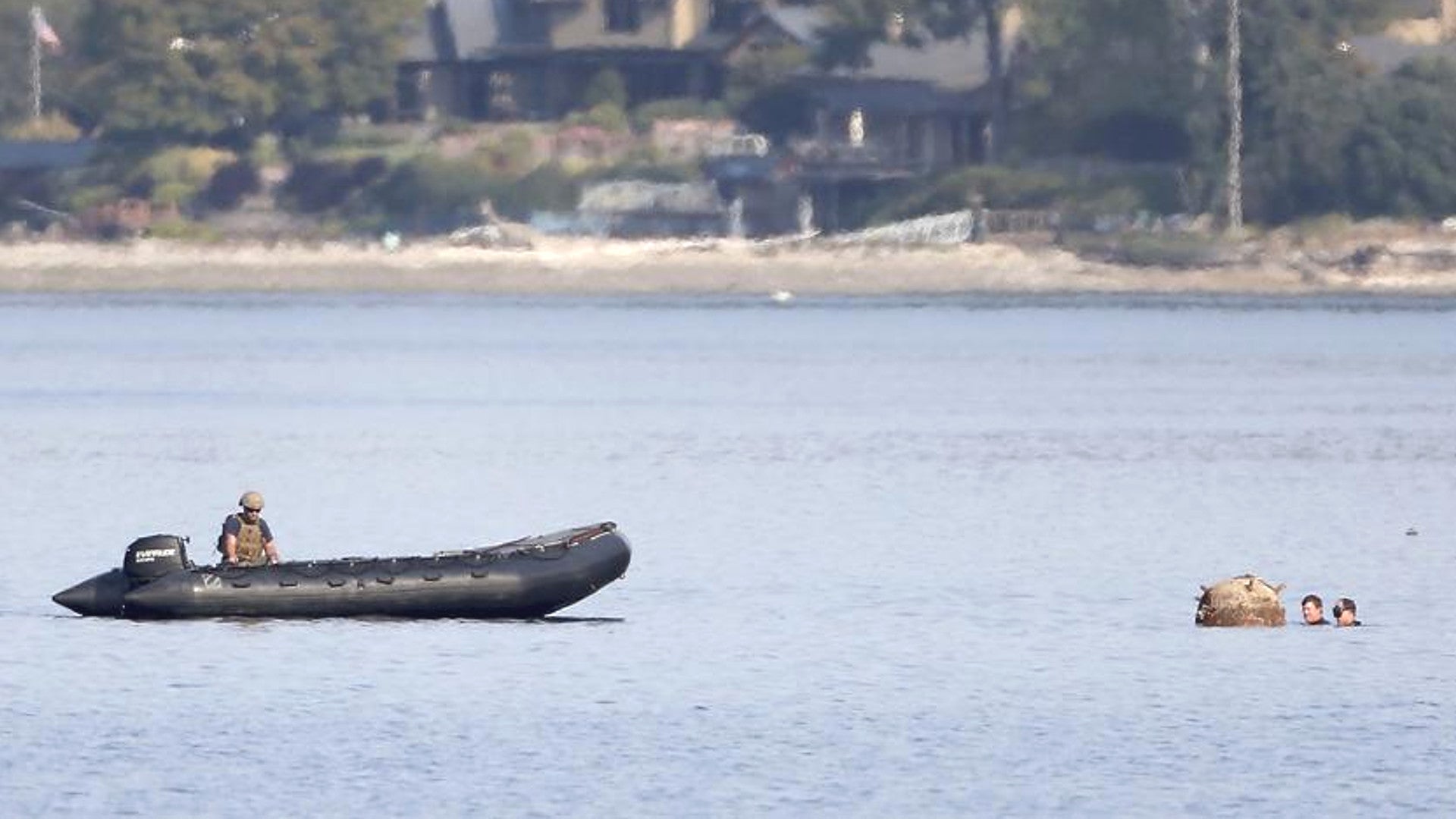After a swift investigation into the matter, the U.S. Navy has concluded that a naval contact mine that surfaced in the Puget Sound near Naval Base Kitsap in Washington State was a relic from a technology demonstration exercise that the Naval Undersea Warfare Center held in 2005. The service confirmed that the mine, which looked like something out of a World War II movie, was inert, but it still posed a hazard to navigation and it will now conduct a thorough survey of the area to locate any other remaining mines from the event.
The mine first appeared off the coast of Bainbridge Island in the Puget Sound on Aug. 28, 2018. The Coast Guard cordoned off the area until the Navy sent in explosive ordnance disposal personnel to carefully assess the object and tow it to Port Orchard Bay, where they blew it up on Aug. 29, 2018.
“This exercise [in 2005] was an opportunity for academia to demonstrate various Unmanned Underwater Vehicles and their capability to detect underwater objects and avoid submerged obstacles,” the Navy said in a release, according to the Kistap Sun. The service had placed a number of inert mines underwater for the event and had apparently assumed they would stay submerged.
The Navy did not say what exercise in 2005 the mine was from specifically, but a very likely candidate would be Autonomous Undersea Vehicle (AUV) Fest 2005, which the National Unmanned Undersea Vehicle Test and Evaluation Center (NUTEC) hosted in June of that year. At that time, NUTEC was a part of the Naval Undersea Warfare Center, which is itself located at Naval Base Kitsap.
A map of the event’s test areas shows one that is almost perfectly aligned with where the mine appeared. The participants, which included teams from the Massachusetts Institute of Technology (MIT) and the Woods Hole Oceanographic Institution, fit with the Navy’s description of the event offering academic institutions an opportunity to show off their underwater robotics developments.

Since 2005, the Naval Undersea Warfare Center, as well as the Navy as a whole, has significantly expanded its unmanned undersea vehicle efforts, including the development of new systems and tactics, techniques, and procedures for using underwater drones, especially to hunt for mines. Earlier in 2018, the Navy’s also stood up its first ever formal underwater drone squadron, Unmanned Undersea Vehicle Squadron One (UUVRON 1), at Naval Base Kitsap. This unit is assigned to the secretive Submarine Development Squadron Five (DEVRON 5), which oversees a number of specialized undersea elements, including the USS Jimmy Carter spy submarine.
Maybe hunting for any other leftover mines from AUV Fest 2005 will turn out to be a good opportunity for another training exercise for UUVRON 1 and other elements of the Naval Undersea Warfare Center, as well as the Navy’s explosive ordnance disposal community.
Contact the author: jtrevithickpr@gmail.com
